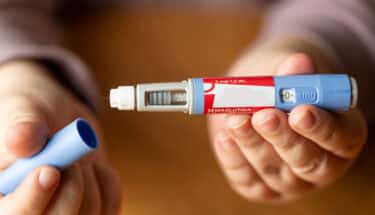To provide an objective assessment of the impact health insurance coverage mandates have on the cost of purchasing healthcare benefits, the Mandated Health Benefits Advisory Commission (MHBAC) was established by P.L.2003, c.193 to provide the Legislature with independent documentation defining the social and financial impact and medical effectiveness of proposed mandated health benefits legislation.
The New Jersey Business and Industry Association (NJBIA) strongly supported the creation of the Mandated Health Benefits Advisory Commission. NJBIA is anxious to see the Legislature continue to utilize the Commission. The Commission provides an objective assessment of proposed legislation that would mandate healthcare benefits based upon their social, financial and medical impacts. NJBIA believes that such reports provide a valuable resource for policy makers as they consider these bills.
Commission Membership
The Commission has 17 members, including: physicians, nurses and hospital representatives, insurance representatives, business and labor representatives, consumer advocates, and the Commissioners of Health and Senior Services; Human Services; and Banking and Insurance. In addition, two members of the Senate and two members of the General Assembly participate as nonvoting members.
Commission members serve without compensation. The members of the commission are assisted in their work by the staff of the New Jersey Department of Banking and Insurance, which staffs the meetings.
Referral of Bills
The MHBAC is responsible for analyzing bills introduced in either House of the Legislature that require a carrier to provide a mandated health benefit, and providing comments and recommendations in writing to the prime sponsor, committee chair and presiding officer of the House in which the bill is pending within 60 days after the date a review is requested.
The presiding officer of the House in which the bill is pending may determine the bill is an urgent matter, and the House or committee may consider and vote upon the bill as soon as practicable.
Or, if the chair of the standing reference committee to which the bill is referred, in consultation with the Commissioner of Health and Senior Services, determines the bill is of such an urgent matter that it would seriously impair the public health to wait for the Commission to issue a report, and so notifies the presiding officer of the House in which the bill is pending, then with the agreement of the presiding officer, the bill may be considered and voted upon as soon as practicable.
ACA Essential Benefits Implications
The essential health benefits requirement went into effect for new plans in the individual and small group markets on January 1, 2014. The Affordable Care Act gives states the flexibility to require that coverage exceeds this minimum standard.
However, if a state mandates that insurers cover benefits in addition to what is included in the minimum essential health benefits package, the law requires the state to pay any additional premium costs associated with these benefits for individuals enrolled in plans sold through the marketplaces. HHS determined that a state benefit mandate enacted before December 31, 2011 will not be considered an addition to the essential health benefits package. (See Affordable Care Act § 1311(d)(3)(B) (codified at 42 U.S.C. § 18031(d)(3)(B) (2006)).
Commission Reports
The Commission has been referred a variety of mandate bills for analysis and has issued a report on each of the bills referred. Report topics have included: off-label drug coverage; physical therapy; screening for ovarian cancer; orthotics and prosthetics (involving two separate bills); hearing aids; treatment in parity for mental illness, alcoholism and substance abuse; and, treatment of autism using applied behavioral analysis (“ABA”).
>Some of these bills have been enacted, including: mandating coverage for orthotics and prosthetics, hearing aids for children under 15 (known as “Grace’s Law”) and autism.
Information about the Act, current mandates and the Mandated Health Benefits Advisory Commission reports are available on the Department of Banking and Insurance website athttp://www.state.nj.us/dobi/division_insurance/mhbac/mandatedhbac.htm
Cost Implications for New Jersey Employers
The role of the Commission is particularly important considering that employers continue to cope with rising costs for healthcare coverage.
The Association places a strong and consistent focus on the quality and affordability of health insurance in New Jersey.
The cost of providing health coverage to employees is one of the most significant challenges facing employers today, and is consistently ranked the number one problem facing our members in our annual business and health benefits surveys.
NJBIA members want to provide health benefits as a way to attract and keep good employees, but have specific concerns about health care and rising health benefits costs. In 2017, the New Jersey average for employee only health coverage was $7,044 and $17,580 for family coverage.
With the cost of health coverage steadily climbing, it is crucial that the impact of all coverage mandates be carefully evaluated. It is unclear what impact this mandate would have on the cost of health insurance.
Thank you for the opportunity to present testimony this morning, and for your consideration of out remarks.





